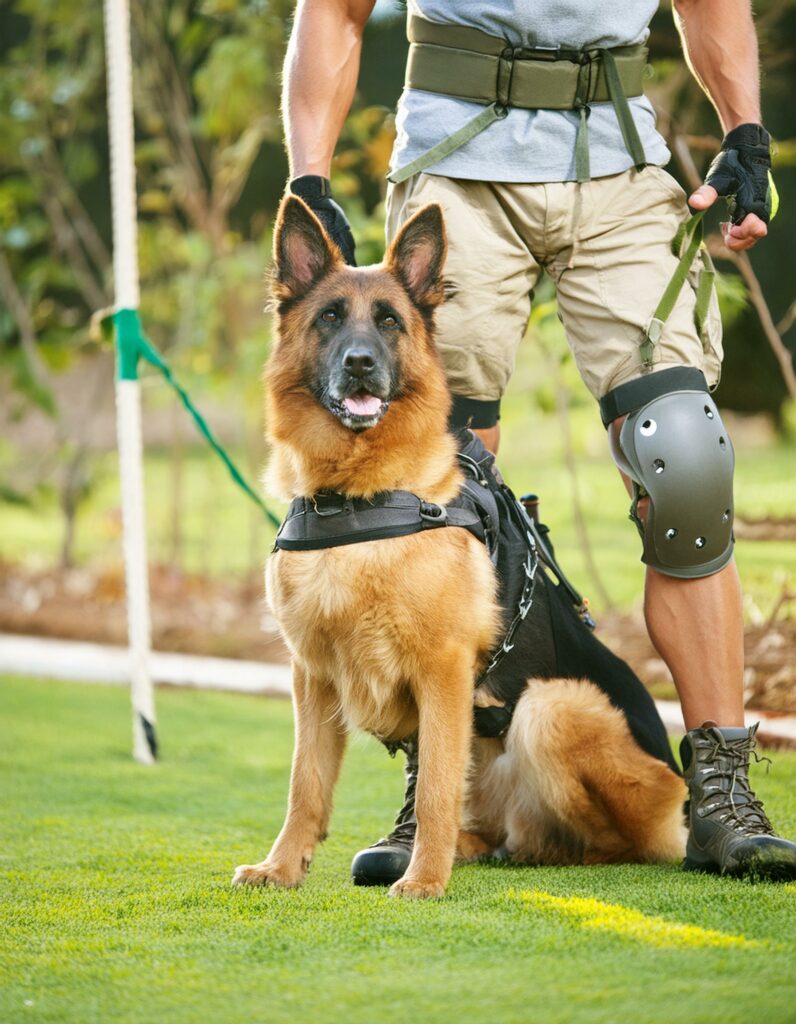German Shepherds, originally bred in Germany in the late 19th century, were initially tasked with herding sheep. Over time, their exceptional qualities, including loyalty, intelligence, and versatility, led to their widespread adoption in various roles, from police and military work to search and rescue missions. Despite their esteemed reputation, potential owners often wonder if German Shepherds are difficult to manage as pets.
Temperament of German Shepherds
Loyalty and Protectiveness
German Shepherds are renowned for their unwavering loyalty and protective instincts towards their families. While this trait is desirable, it can sometimes manifest as overprotectiveness, leading to issues with strangers or other pets.
Intelligence and Trainability
One of the hallmarks of the German Shepherd breed is their remarkable intelligence and trainability. They excel in obedience training and can quickly learn complex commands. However, their intelligence also means they require mental stimulation and challenges to prevent boredom and behavioral problems.
Aggression and Dominance Issues
Like any breed, German Shepherds can display aggressive behavior if not properly socialized and trained. Additionally, their natural inclination towards dominance can pose challenges for inexperienced owners, necessitating firm leadership and consistent training.
Training German Shepherds

Importance of Early Socialization
Early socialization is critical for German Shepherds to develop proper behavior around people and other animals. Exposing them to various environments and situations from a young age helps prevent fearfulness and aggression later in life.
Positive Reinforcement Techniques
German Shepherds respond well to positive reinforcement training methods, such as rewards and praise. Harsh or punitive methods can erode their trust and lead to behavioral issues.
Consistency and Patience
Consistency is key when training German Shepherds. They thrive on routine and clear expectations. Patience is also essential, as training may take time, especially for complex behaviors or commands.
Exercise Needs
High Energy Levels
German Shepherds are high-energy dogs that require regular exercise to maintain their physical and mental well-being. Daily walks, play sessions, and engaging activities are essential to prevent boredom and destructive behaviors.
Mental Stimulation Requirements
In addition to physical exercise, German Shepherds need mental stimulation to keep their minds sharp and prevent behavioral issues. Interactive toys, obedience training, and puzzle games are excellent ways to provide mental challenges.
Ideal Activities for German Shepherds
German Shepherds excel in various canine sports and activities, including agility, obedience, and tracking. Engaging in these activities not only provides physical exercise but also strengthens the bond between owner and dog.
Potential Challenges
Separation Anxiety
German Shepherds form strong bonds with their owners and may experience separation anxiety when left alone for extended periods. Gradual desensitization and providing comfort in their absence can help alleviate this issue.
Destructive Behaviors
Without adequate exercise and mental stimulation, German Shepherds may engage in destructive behaviors like chewing, digging, or excessive barking. Addressing the root cause and providing appropriate outlets for energy can prevent these behaviors.
Health Concerns
Like all breeds, German Shepherds are prone to certain health conditions, including hip dysplasia, degenerative myelopathy, and digestive issues. Regular veterinary check-ups and a balanced diet are essential for maintaining their health and well-being.
Tips for Managing German Shepherds

Providing Sufficient Exercise and Mental Stimulation
Meeting their exercise and mental stimulation needs is crucial for preventing behavioral problems and ensuring their overall happiness and well-being.
Establishing Clear Boundaries
Consistent training and clear boundaries help German Shepherds understand their role within the family and what behaviors are acceptable.
Regular Veterinary Check-ups
Routine veterinary care, including vaccinations, parasite prevention, and dental exams, is essential for detecting and addressing health issues early.
Myths vs. Reality
Addressing Common Misconceptions
Despite misconceptions, German Shepherds are not inherently aggressive or dangerous. Proper training and socialization play a significant role in shaping their behavior.
Highlighting the Positive Aspects of German Shepherds
German Shepherds are incredibly versatile and adaptable dogs. With the right guidance and care, they can thrive in various roles and make devoted companions.
Conclusion
While owning a German Shepherd comes with its challenges, their loyalty, intelligence, and versatility make them incredibly rewarding pets for dedicated owners. With proper training, socialization, and care, German Shepherds can be cherished members of the family for years to come.
